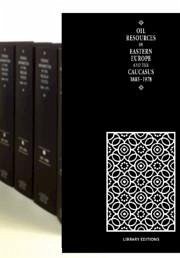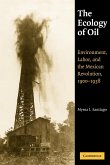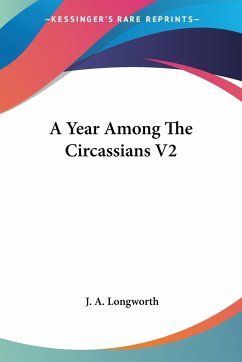Oil Resources in Eastern Europe and the Caucasus 1885-1978
Mitwirkender: Burdett, Anita L P
Schade – dieser Artikel ist leider ausverkauft. Sobald wir wissen, ob und wann der Artikel wieder verfügbar ist, informieren wir Sie an dieser Stelle.
Oil Resources in Eastern Europe and the Caucasus 1885-1978
Mitwirkender: Burdett, Anita L P
- Broschiertes Buch
- Merkliste
- Auf die Merkliste
- Bewerten Bewerten
- Teilen
- Produkt teilen
- Produkterinnerung
- Produkterinnerung
A selection of British Government documents concerning the development of oil resources in Eastern Europe and the Caucasus.
Andere Kunden interessierten sich auch für
![The History of the British Petroleum Company 2 Volume Set The History of the British Petroleum Company 2 Volume Set]() J H BambergThe History of the British Petroleum Company 2 Volume Set124,99 €
J H BambergThe History of the British Petroleum Company 2 Volume Set124,99 €![Swindon Works 1930-1960 Swindon Works 1930-1960]() Peter TimmsSwindon Works 1930-196025,99 €
Peter TimmsSwindon Works 1930-196025,99 €![The Ecology of Oil The Ecology of Oil]() Myrna I. SantiagoThe Ecology of Oil48,99 €
Myrna I. SantiagoThe Ecology of Oil48,99 €![The Battle for the Caucasus 1942-1943 The Battle for the Caucasus 1942-1943]() Anthony Tucker-JonesThe Battle for the Caucasus 1942-194320,99 €
Anthony Tucker-JonesThe Battle for the Caucasus 1942-194320,99 €![The French Economy in the Twentieth Century The French Economy in the Twentieth Century]() Jean-Pierre DormoisThe French Economy in the Twentieth Century34,99 €
Jean-Pierre DormoisThe French Economy in the Twentieth Century34,99 €![British Petroleum and Global Oil 1950-1975 British Petroleum and Global Oil 1950-1975]() James BambergBritish Petroleum and Global Oil 1950-197566,99 €
James BambergBritish Petroleum and Global Oil 1950-197566,99 €![A Year Among The Circassians V2 A Year Among The Circassians V2]() J. A. LongworthA Year Among The Circassians V236,99 €
J. A. LongworthA Year Among The Circassians V236,99 €-
-
-
A selection of British Government documents concerning the development of oil resources in Eastern Europe and the Caucasus.
Produktdetails
- Produktdetails
- Verlag: Cambridge Archive Editions
- Seitenzahl: 6000
- Erscheinungstermin: 19. August 2013
- Englisch
- Abmessung: 295mm x 457mm x 269mm
- Gewicht: 12746g
- ISBN-13: 9781840973150
- ISBN-10: 1840973153
- Artikelnr.: 35070801
- Herstellerkennzeichnung
- Libri GmbH
- Europaallee 1
- 36244 Bad Hersfeld
- gpsr@libri.de
- Verlag: Cambridge Archive Editions
- Seitenzahl: 6000
- Erscheinungstermin: 19. August 2013
- Englisch
- Abmessung: 295mm x 457mm x 269mm
- Gewicht: 12746g
- ISBN-13: 9781840973150
- ISBN-10: 1840973153
- Artikelnr.: 35070801
- Herstellerkennzeichnung
- Libri GmbH
- Europaallee 1
- 36244 Bad Hersfeld
- gpsr@libri.de
Volume 1. 1886
1920: The earliest period of British investment in oil concessions in the Trans-Caucasus and Roumania, depicting typical commercial procedures, involvement of land owners, and the setback to the industry brought about by the Russian Revolution of 1905; Volume 2. 1920
1922: 1920 did not mark the end of disturbances brought about by the First World War in Russia, especially in Trans-Caucasia: the Caspian Sea, Baku, Batoum and other ports, and the three regions which briefly constituted the republic of Trans-Caucasia were occupied and contested variously by the Allies, by General Deniken and the White Russians, by Turkey, and ultimately by the Bolsheviks; Volume 3. 1922
1938: Relations were tense between the UK government, the Soviet Union and Roumania over the unsettled claims, and despite British businesses maintaining a footing in the petroleum trade, the insularity of the Soviet regime during this period led to a steady decline in export/import to western European countries; Volume 4. 1939
1945: Main emphasis is on the defence of Soviet and East European supplies and plans to prevent their falling into belligerent hands; Volume 5. 1946
1948: Dealing with the legacy of Soviet expansionism, and incipient nationalism, from Austria to Iran; Volume 6. 1951
1960: Impact and ramifications of the nationalisation of British companies by foreign governments; efforts by British firms to claim for losses; Soviet Bloc oil: debates about possible imports into the UK, general reviews of export potential in the context of the continuing issue of outstanding claims; Volume 7. 1960
1966: NATO concerns over possibility of increased Russian oil exports, lobbying by the UK; reviews of the effects on the non-communist market, January
March 1961. Consideration of a change of British policy to Soviet oil, in relation to the attitudes of USA and European countries, 1961. Soviet oil exports and the EEC, 1962
63, towards an accommodation with the Russians over oil imports, 1962
64; Volume 8. 1967
1978: This volume addresses the period of relaxation of trade sanctions in oil with Eastern European countries and with Russia, brought about by the resolution of the dispute over claims arising from World War ll, and from the conclusion that Russian oil imports would not diminish other UK energy industries; Volume 9. 20 colour maps.
1920: The earliest period of British investment in oil concessions in the Trans-Caucasus and Roumania, depicting typical commercial procedures, involvement of land owners, and the setback to the industry brought about by the Russian Revolution of 1905; Volume 2. 1920
1922: 1920 did not mark the end of disturbances brought about by the First World War in Russia, especially in Trans-Caucasia: the Caspian Sea, Baku, Batoum and other ports, and the three regions which briefly constituted the republic of Trans-Caucasia were occupied and contested variously by the Allies, by General Deniken and the White Russians, by Turkey, and ultimately by the Bolsheviks; Volume 3. 1922
1938: Relations were tense between the UK government, the Soviet Union and Roumania over the unsettled claims, and despite British businesses maintaining a footing in the petroleum trade, the insularity of the Soviet regime during this period led to a steady decline in export/import to western European countries; Volume 4. 1939
1945: Main emphasis is on the defence of Soviet and East European supplies and plans to prevent their falling into belligerent hands; Volume 5. 1946
1948: Dealing with the legacy of Soviet expansionism, and incipient nationalism, from Austria to Iran; Volume 6. 1951
1960: Impact and ramifications of the nationalisation of British companies by foreign governments; efforts by British firms to claim for losses; Soviet Bloc oil: debates about possible imports into the UK, general reviews of export potential in the context of the continuing issue of outstanding claims; Volume 7. 1960
1966: NATO concerns over possibility of increased Russian oil exports, lobbying by the UK; reviews of the effects on the non-communist market, January
March 1961. Consideration of a change of British policy to Soviet oil, in relation to the attitudes of USA and European countries, 1961. Soviet oil exports and the EEC, 1962
63, towards an accommodation with the Russians over oil imports, 1962
64; Volume 8. 1967
1978: This volume addresses the period of relaxation of trade sanctions in oil with Eastern European countries and with Russia, brought about by the resolution of the dispute over claims arising from World War ll, and from the conclusion that Russian oil imports would not diminish other UK energy industries; Volume 9. 20 colour maps.
Volume 1. 1886
1920: The earliest period of British investment in oil concessions in the Trans-Caucasus and Roumania, depicting typical commercial procedures, involvement of land owners, and the setback to the industry brought about by the Russian Revolution of 1905; Volume 2. 1920
1922: 1920 did not mark the end of disturbances brought about by the First World War in Russia, especially in Trans-Caucasia: the Caspian Sea, Baku, Batoum and other ports, and the three regions which briefly constituted the republic of Trans-Caucasia were occupied and contested variously by the Allies, by General Deniken and the White Russians, by Turkey, and ultimately by the Bolsheviks; Volume 3. 1922
1938: Relations were tense between the UK government, the Soviet Union and Roumania over the unsettled claims, and despite British businesses maintaining a footing in the petroleum trade, the insularity of the Soviet regime during this period led to a steady decline in export/import to western European countries; Volume 4. 1939
1945: Main emphasis is on the defence of Soviet and East European supplies and plans to prevent their falling into belligerent hands; Volume 5. 1946
1948: Dealing with the legacy of Soviet expansionism, and incipient nationalism, from Austria to Iran; Volume 6. 1951
1960: Impact and ramifications of the nationalisation of British companies by foreign governments; efforts by British firms to claim for losses; Soviet Bloc oil: debates about possible imports into the UK, general reviews of export potential in the context of the continuing issue of outstanding claims; Volume 7. 1960
1966: NATO concerns over possibility of increased Russian oil exports, lobbying by the UK; reviews of the effects on the non-communist market, January
March 1961. Consideration of a change of British policy to Soviet oil, in relation to the attitudes of USA and European countries, 1961. Soviet oil exports and the EEC, 1962
63, towards an accommodation with the Russians over oil imports, 1962
64; Volume 8. 1967
1978: This volume addresses the period of relaxation of trade sanctions in oil with Eastern European countries and with Russia, brought about by the resolution of the dispute over claims arising from World War ll, and from the conclusion that Russian oil imports would not diminish other UK energy industries; Volume 9. 20 colour maps.
1920: The earliest period of British investment in oil concessions in the Trans-Caucasus and Roumania, depicting typical commercial procedures, involvement of land owners, and the setback to the industry brought about by the Russian Revolution of 1905; Volume 2. 1920
1922: 1920 did not mark the end of disturbances brought about by the First World War in Russia, especially in Trans-Caucasia: the Caspian Sea, Baku, Batoum and other ports, and the three regions which briefly constituted the republic of Trans-Caucasia were occupied and contested variously by the Allies, by General Deniken and the White Russians, by Turkey, and ultimately by the Bolsheviks; Volume 3. 1922
1938: Relations were tense between the UK government, the Soviet Union and Roumania over the unsettled claims, and despite British businesses maintaining a footing in the petroleum trade, the insularity of the Soviet regime during this period led to a steady decline in export/import to western European countries; Volume 4. 1939
1945: Main emphasis is on the defence of Soviet and East European supplies and plans to prevent their falling into belligerent hands; Volume 5. 1946
1948: Dealing with the legacy of Soviet expansionism, and incipient nationalism, from Austria to Iran; Volume 6. 1951
1960: Impact and ramifications of the nationalisation of British companies by foreign governments; efforts by British firms to claim for losses; Soviet Bloc oil: debates about possible imports into the UK, general reviews of export potential in the context of the continuing issue of outstanding claims; Volume 7. 1960
1966: NATO concerns over possibility of increased Russian oil exports, lobbying by the UK; reviews of the effects on the non-communist market, January
March 1961. Consideration of a change of British policy to Soviet oil, in relation to the attitudes of USA and European countries, 1961. Soviet oil exports and the EEC, 1962
63, towards an accommodation with the Russians over oil imports, 1962
64; Volume 8. 1967
1978: This volume addresses the period of relaxation of trade sanctions in oil with Eastern European countries and with Russia, brought about by the resolution of the dispute over claims arising from World War ll, and from the conclusion that Russian oil imports would not diminish other UK energy industries; Volume 9. 20 colour maps.








